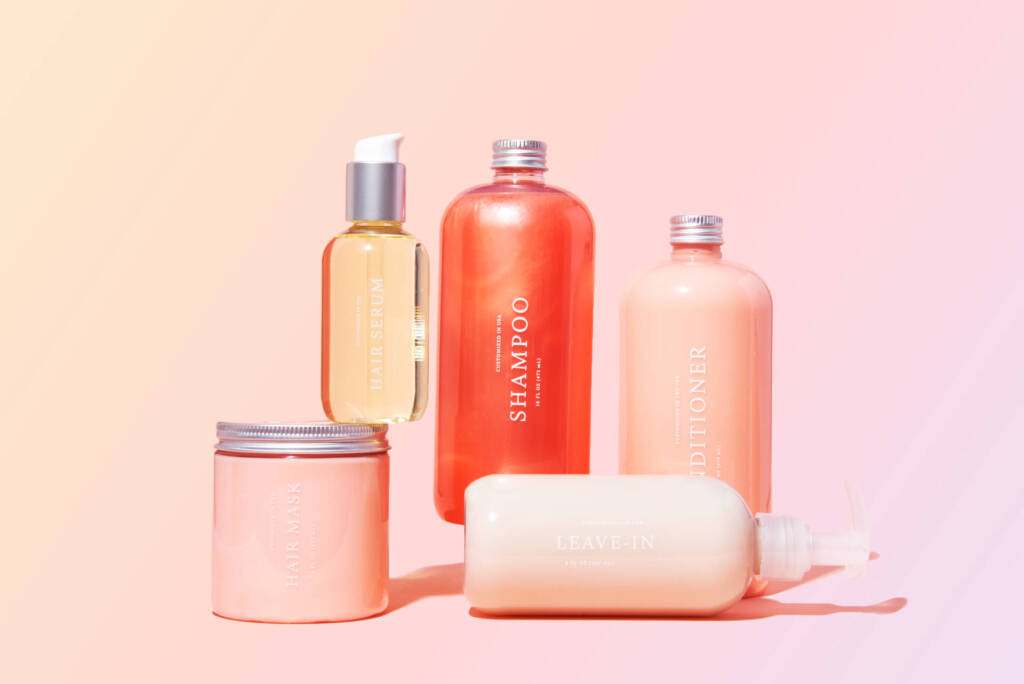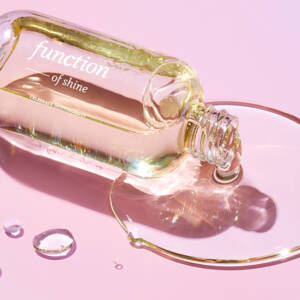Disclaimer: The information provided is not intended as medical advice. For any medical concerns, always contact your doctor.
What’s the best hair oil? Do you have to choose just one? The truth is, there’s a variety of hair oils that can boost the look of your locks. Hair oils have been used for styling tresses since pretty much the beginning of hair history. They detangle locks, make hair look shiny, and even help address damage. But hair oils have many other benefits you might not know about.
While there’s no single best hair oil for every hair type or hair goal, there are a few top options to consider adding to your haircare routine ASAP. Let’s take a journey to find the best hair oils and dive into some of our favorite options for achieving your hair goals.
Avocado Oil
Interesting fact: avocado oil contains oleic and linoleic acid. Why is this important? Because these are also natural compounds that make up the structure of your hair cuticles. These fatty acids are what helps keep hair looking and feeling healthy, shiny, soft, and strong.
One of the best things about avocado oil is that it can help fight hair dryness. That’s because avocado oil is lightweight enough to easily absorb into the hair shaft. For those of us with dry scalps or dehydrated hair, using hair products infused with avocado oil can add much-needed moisture. Its hydrating abilities also makes it a great detangling hair treatment that won’t leave your locks with a greasy residue.
If you’d like to try an avocado oil-infused hair product, consider Function of Beauty’s custom leave-in treatment. This easy-to-use conditioning cream can be formulated (based on your hair goals) with avocado oil to smooth and detangle dry, frizzy locks. It’s also made with other ingredients like argan oil but it can be customized depending on your specific hair goals and hair type.
Pro Tip: Avocado oil is best for those with dry, frizzy, or easily tangled hair.
Coconut Oil
Does your hairdresser complain that you’re damaging your hair by over-shampooing? Or do you notice that your locks have become super-fragile from hair coloring and other chemical processing? Or maybe your vice is frequent blow-drying and straight ironing. Whatever the case might be, coconut oil can help address some of these issues.
Coconut oil is high in a fatty acid called lauric acid, which allows it to reach the inner layers of the hair shaft. This makes it one of the best oils for counteracting the harsh oil-stripping effects of some shampoos that contain sulfates.
Because coconut oil can attach itself to the proteins inside of each hair strand, it can help prevent hair damage that stops your natural hair from looking its best. (Breakage and split ends, we’re talking about you.). Plus, it makes hair feel super-soft and look ultra-shiny. (It’s also a popular ingredient in DIY skincare treatments.) Though not necessarily a heat protectant, coconut oil can be applied before and after heat styling to combat the effects of heat-induced damage such as dry, stiff, and brittle strands.
To add coconut oil to your haircare routine, you can’t go wrong with our custom conditioner. When customized with the “hydrate” hair goal, this conditioner will include a boost of coconut oil to help restore moisture. Combined with a shampoo that’s also customized to cater to your unique hair type, moisture levels, and goals, this hair washing duo will help you take advantage of the benefits of coconut oil along with other ingredients included in the formula.
Pro Tip: Coconut oil is best for thick, coarse, coily, curly, and damaged hair.
Grapeseed Oil
Another must on the “best hair oil” list actually comes from the leftover parts of grapes that aren’t used when making wine. Grapeseed oil is a lightweight oil that contains a variety of antioxidants, vitamin E, vitamin D, vitamin C, linoleic acid, and omega-6 fatty acids.
Why do we love this hair oil as much as we love this fruit in wine? Because it offers solutions to daily hair problems such as hair breakage and frizz. The linoleic acid content of grapeseed oil allows it to form a shield of protection around hair cuticles. This can help your hair from getting worn down from over-brushing, combing, and other tools that cause friction.
Whether you have curly hair that’s super frizzy and rough, strands that are damaged from years of chemical processing and heat styling, or tresses that are simply thirsty for moisture, grapeseed oil definitely has a place in your life. Much like avocado oil, grapeseed is a nourishing oil that delivers the hydration and smoothness that dry, damaged, and frizzy locks need.
Try this DIY grapeseed oil treatment once or twice a week at home:
- Measure a couple of teaspoons of pure grapeseed oil (be sure to use cold-pressed) and apply to damp hair
- Brush oil into your hair using a wide-tooth comb to ensure the application is even and doesn’t tug at your strands — do not apply to roots if you are prone to having an oily scalp
- Leave on for a half-hour then wash out with shampoo and finish with conditioner
Pro Tip: Grapeseed oil is best for thin, fine, damaged, or frizzy hair.
Vitamin E Oil
What is vitamin E and why do many consider it to be the best hair oil in haircare products? Because vitamin E oil can be used in many products to help protect against dry hair follicles that dehydrate the scalp of its natural oils. It can also help fight off scalp flakiness and revitalize dry hair. Using a vitamin E oil scalp treatment can be a great way to reduce scalp dryness and flakes, and may even promote the scalp’s natural oils.
Vitamin E oil may be a great addition to a healthy hair routine, but only if used sparingly. Similar to castor oil, its ultra-thick consistency can leave hair with a sticky buildup if applied directly without a lighter carrier oil (like jojoba oil, grapeseed oil, or argan oil). As such, those with fine hair may want to avoid it.
If you want to take advantage of the potential benefits of vitamin E oil for hair, purchase a small bottle online or at your local health food store and follow these steps to create your own bi-weekly DIY treatment:
- Combine a few drops with 1-2 teaspoons of light carrier oil, such as jojoba oil, grapeseed oil, sweet almond oil, or olive oil
- Massage mixture into your hair strands until fully coated
- Leave on for one hour and rinse out with cool water
Pro Tip: Vitamin E oil is best for dry hair, dry scalp, and those prone to flakiness.
Experiment to Find the Best Hair Oil for You and Your Locks
So what’s the best hair oil out there? The truth is that there is no single answer to this question. Between the detangling powers of avocado oil, the damage-fighting strength of coconut oil, the cuticle-protecting capabilities of grapeseed oil, and the flake-fighting and hydrating properties of vitamin E oil, there’s sure to be an oil that’s perfect for your hair type and goals.
Take our hair quiz and create a profile that includes your top hair goals. Depending on which goals you choose, some of these top hair oils — along with other naturally derived and synthetic ingredients — can be added to your custom haircare set.





